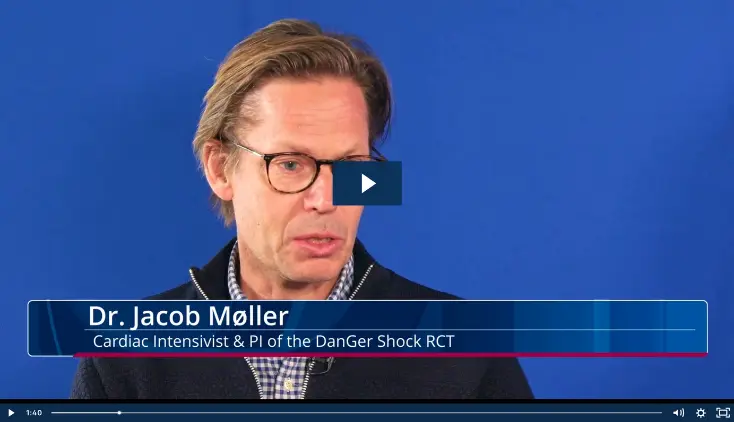Patient Identification, AMI Cardiogenic Shock
Interview with Dr. Andrea Montisci: MCS and the Spectrum of Cardiogenic Shock
Andrea Montisci, M.D., discusses his paper, “Recognizing Patients as Candidates for Mechanical Circulatory Support Along the Spectrum of Cardiogenic Shock.” This is one of eight articles published in the European Heart Journal Supplements “From Patient Selection to Escalation Strategies: Mechanical Circulatory Support in Cardiogenic Shock.”
“We know that the publication of the SCAI classification of cardiogenic shock [stages] disrupted the concept of cardiogenic shock as a monolithic disease,” Dr. Montisci explains. He emphasizes that SCAI staging is a dynamic process rather than a snapshot and that more than 40 percent of patients presenting with SCAI stage B shock will progress to SCAI stage C within 24 hours, “suggesting that a timely and prompt insertion of MCS is a key clinical factor to obtain a therapeutic success.”
Dr. Montisci provides an overview of the three phenotypes of cardiogenic shock (CS) described in his paper: non-congested CS, cardiorenal CS, and cardiometabolic CS. It is important to identify these phenotypes, he explains, because they correlate with prognosis. He discusses the importance of differentiating cardiogenic shock after acute myocardial infarction (AMI) from cardiogenic shock in heart failure patients. He also describes how cardiac arrest is associated with a worse prognosis across every stage of cardiogenic shock; and he talks about the role of gender in cardiogenic shock etiology and outcome.
Dr. Montisci highlights therapeutic options for various clinical scenarios, emphasizing the individualized and dynamic nature of managing CS and the correct time window for intervention. “We should look for cardiogenic shock in patients at risk,” he states, “rather than wait for the striking clinical manifestations of shock.”
In conclusion, Dr. Montisci says, “We now have a better knowledge about the difference between cardiogenic shock after myocardial infarction and cardiogenic shock in heart failure patients, and the concept of global heterogeneity of cardiogenic shock is well known. At the same time, the SCAI classification deployed in the last three years, its overall value for the definition of patient prognosis indicating that the early recognition, the timely implantation of mechanical circulatory support, could be the way... the true game changers to reduce the mortality of cardiogenic shock.”
Sign Up for Latest Updates
NPS-4091


